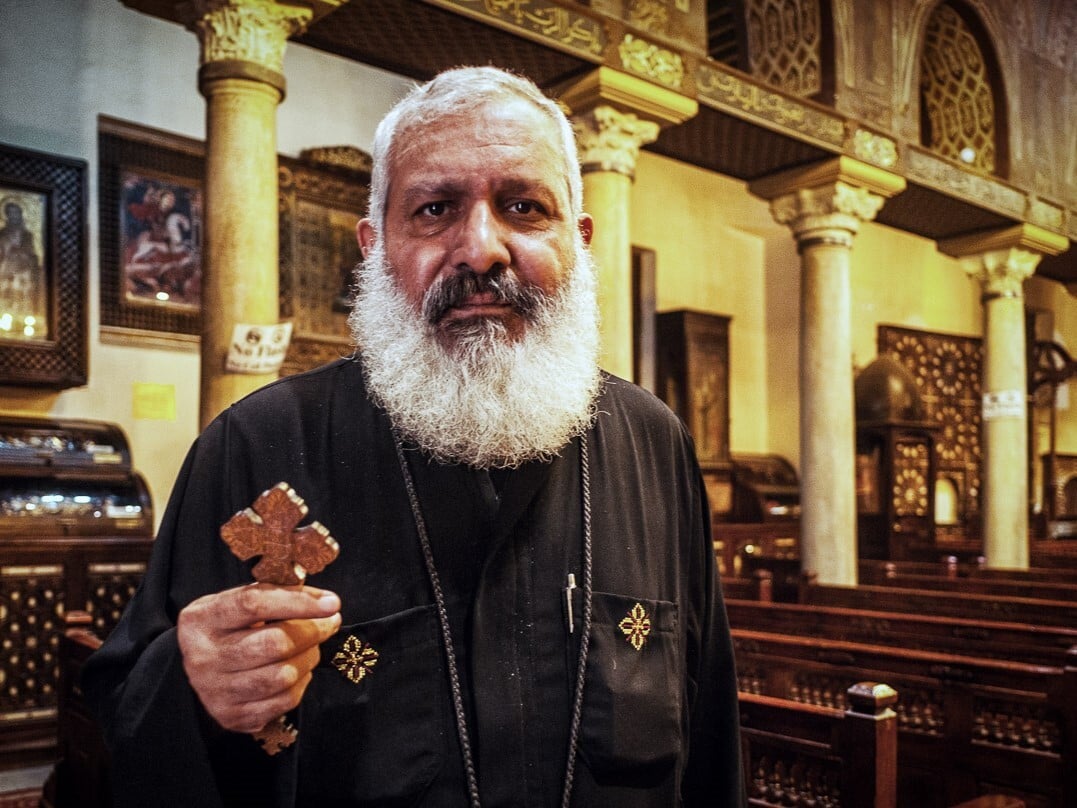
Criminalizing blasphemy: Implications for Egypt’s religious minorities
Egypt’s government has long invoked blasphemy laws to target its religious minorities. Such laws exist in 18 out of 20 countries in the Middle East and North Africa where they are regularly used by authorities to restrict the human rights of religious minorities. Ridiculing or insulting the so-called ‘heavenly’ religions of Sunni Islam, Christianity and Judaism is prohibited under Egypt’s main blasphemy law, Article 98(f) of its Penal Code. The Egyptian Constitution refuses to acknowledge the existence of any other religion and faith groups. In recent years, a wave of arrests on charges of blasphemy have provoked renewed calls for the amendment or abolition of Article 98(f).
In 2019, 26-year-old Coptic Christian Fady Youssef Todary came under attack when he allegedly posted blasphemous content on his Facebook page. Despite later posting a video explaining that his account was hacked and that he did not post the blasphemous message, Todary’s family home was vandalized by a mob of 100 people, causing his parents to flee and seek refuge with other members of their family.
When police arrived at the house to arrest the attackers, they also put Todary under arrest on blasphemy charges. He was jailed a few days later. In a similar incident in May 2022, security officials arrested Ahmed Mohamed for allegedly leading a terrorist group that disrespects the ‘heavenly’ religions. In 2023 the Cairo Criminal Court renewed Mohamed’s detention with his case remaining under investigation.
These are just two of countless documented instances of the potential misuse of Article 98(f) by religious clerics and law enforcement authorities to levy unsubstantiated accusations against members of religious minorities. The Coptic Christian community, the largest religious minority in Egypt, appears to bear the brunt of these allegations. Even a seemingly innocuous Facebook post or comment can lead to societal condemnation and legal ramifications for the accused.
While it is estimated that up to 90 per cent of blasphemy charges in Egypt are brought against Christians, blasphemy legislation is also employed against atheists in a discriminatory way. In 2012, 27-year-old blogger Alber Saber was sentenced to three years in prison on charges of blasphemy for creating a web page entitled ‘Egyptian Atheists’. In 2014, 21-year-old student Karim Ashraf Mohamed al-Banna was arrested for proclaiming on Facebook that he was an atheist.
According to Article 98(f), ‘anyone who exploits religion to promote, verbally, in writing, or by any other means, extremist ideas with the intent to stir up sedition, humiliate or contempt for one of the monotheistic religions or sects belonging to them, or harming national unity shall be subject to penalties.’ The ambiguous wording grants law enforcement authorities and the judiciary considerable latitude in its interpretation.
The discriminatory application of blasphemy laws in Egypt has a stifling effect on the fundamental human rights to freedom of religion and freedom of expression, upheld by Articles 11 and 18 of the International Covenant on Civil and Political Rights (ICCPR), ratified by Egypt in 1982.
Having ratified the ICCPR, Egypt is legally obliged to protect the rights to freedom of expression, freedom of thought, conscience, and religion or belief, as well as the right to equal and effective protection against discrimination on the basis of religion, as well as the other grounds protected in the ICCPR. Rights activists are currently working on a bill to amend Article 98(f) in an effort to protect the right to freedom of expression. While many call for the complete abolition of blasphemy law, a bill to amend the law might be the first crucial step in the long journey to end religious persecution in Egypt.
Laws against blasphemy in Egypt are regularly used to target activities, while being considered unlawful under international human rights law. They are not only stifling fundamental human rights; they are also enabling and exacerbating religious intolerance. As we discussed in the first of this series, the repression of minority religion is a poignant trend in a region known for its religious diversity. The expression of minority faiths, or the expression of none, must be protected.
This blog series is part of a collaboration between MRG and the Human Rights Centre Clinic of the University of Essex.
 Coptic priest with a cross. Tilal Ain As-Sira, Cairo. Credit: Michał Huniewicz via Flickr (CC BY 2.0 DEED).
Coptic priest with a cross. Tilal Ain As-Sira, Cairo. Credit: Michał Huniewicz via Flickr (CC BY 2.0 DEED).

